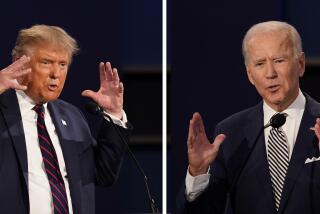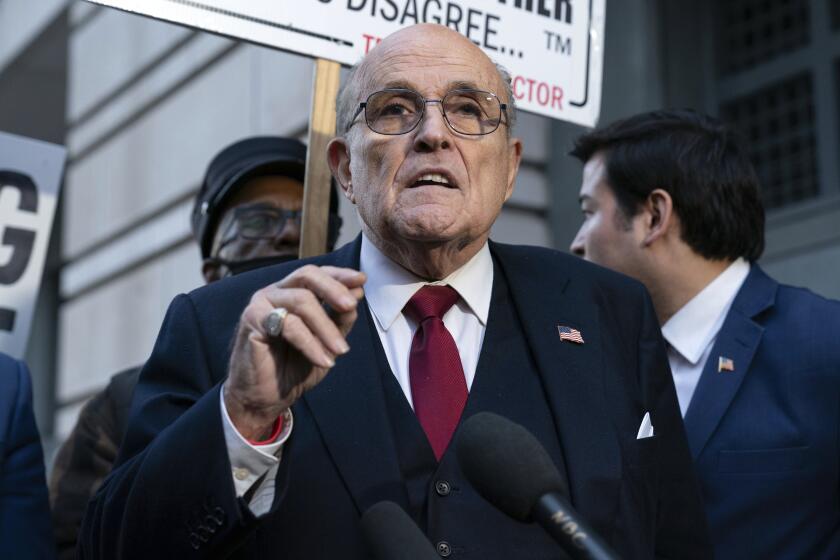Clinton Dithers While Federal Bench Shrinks : One-sixth now vacant--126 judgeships out of a total of 828
Senate hearings on the nomination of Judge Ruth Bader Ginsburg to the U.S. Supreme Court begin this week. She is a well-qualified and talented jurist; by all accounts, her confirmation will be speedy.
JUDICIAL VACUUM: We hope, as well, that her confirmation will ease what has become a highly charged process of making appointments to all levels of the federal bench and prompt President Clinton to fill vacancies that now stand at an alarming number. One-sixth of the seats are empty--126 judgeships out of a total of 828. Clinton has yet to fill even one.
In written answers to questions from the Senate Judiciary Committee, released earlier this month, Ginsburg has given Clinton some much-needed ideological breathing room. She said that disputes over “judicial activism” arise when courts are forced to resolve issues that lawmakers are too timid to handle. She’s right. Judges who, for example, take over public school districts to enforce desegregation rulings do so with great reluctance, she wrote. “In a representative democracy, important policy questions should be confronted, debated and resolved by elected officials.” If officials fail to do so, judges have to fill the gaps, thus becoming vulnerable to criticism that they are using excessive power.
Conservatives have, in recent years, accused liberal judges of activism, contending that these judges have exceeded their powers and engaged in making law rather than simply interpreting it. Yet judicial activism is not a prisoner of any one ideology; indeed, conservative activists of the early 20th Century consistently refused to sanction legislation to address social or economic problems such as child labor.
Both former Presidents George Bush and Ronald Reagan sought judges they considered reliable conservatives. Together they appointed more than 550 judges, or almost 70% of those now sitting. They are disproportionately white, male and wealthy. And they have tilted federal jurisprudence decidedly to the right, often through activism of a conservative stripe.
LIMITED POOL: Clinton promised to make the federal judiciary look more like the American people. So far he has failed to deliver. If he is sincere in his promise--and his appointments to other federal posts indicate he is--why then has he nominated no judges other than Ginsburg?
Delay in filling vacancies in key White House and Justice Department positions that vet judicial appointments is partly to blame. But the larger problem may be in the nature of the pool from which nominations historically have come. Many federal judges begin as state court judges. California’s, like those in other states, are overwhelmingly white and male. So too are most lawyers in California and other states, especially those in leadership positions. These lawyers represent the other major category from which judges come.
The huge number of vacancies constitutes a problem for those with cases before the federal bench. Clinton must act now. He should focus not on judicial ideology but should instead articulate a set of values that he seeks in federal judges; values such as intelligence, compassion and a commitment to public service should be high on the list. Once the President does this, he will find among potential nominees--despite limitations in the existing pool--enough diversity and excellence to end this dangerous shortage.
More to Read
Get the L.A. Times Politics newsletter
Deeply reported insights into legislation, politics and policy from Sacramento, Washington and beyond. In your inbox three times per week.
You may occasionally receive promotional content from the Los Angeles Times.






